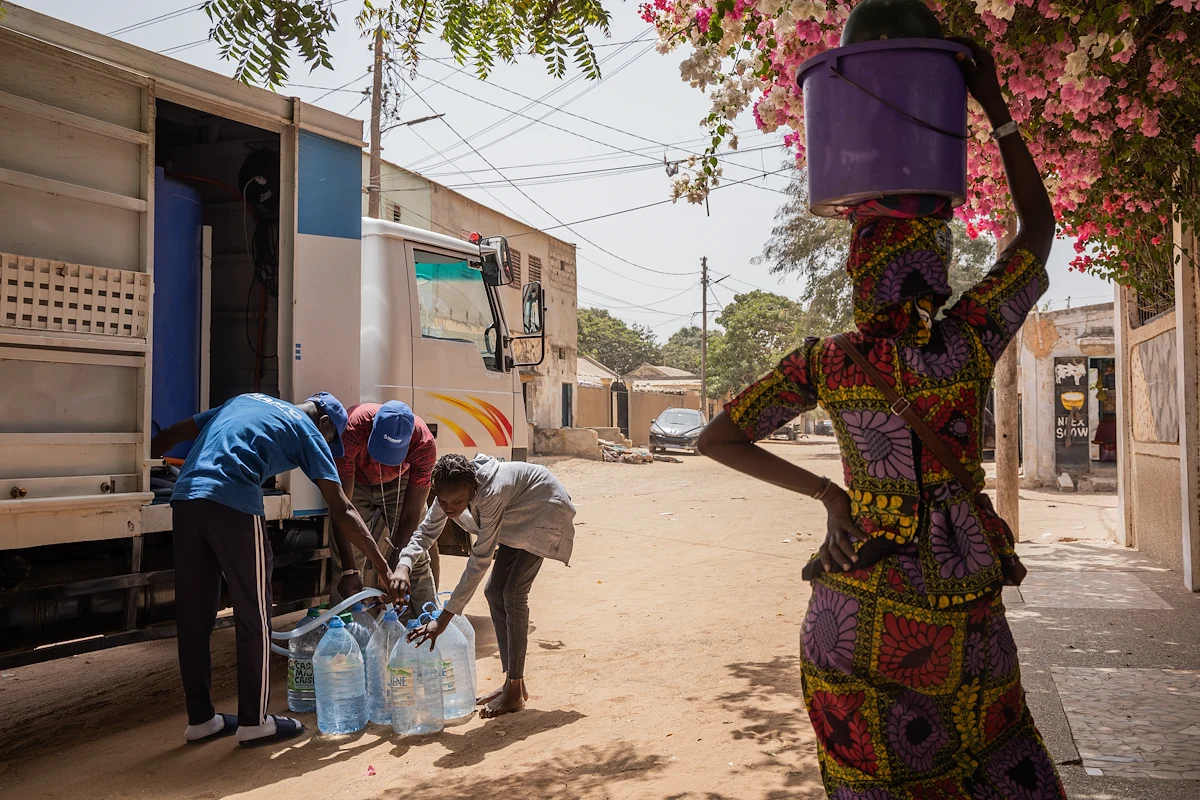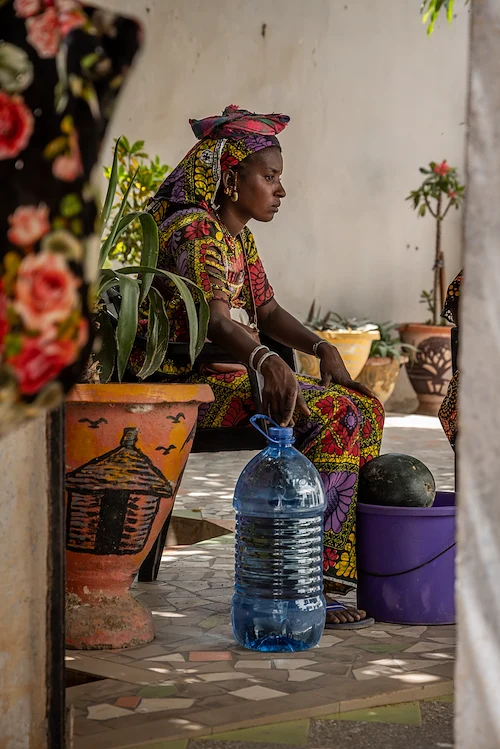Dakar, SenegalWhen Marieme Diallo first took a sip of Diam’O water, it tasted like opportunity. It wasn’t just that the water was smoother and cleaner than the water from most people’s taps in Senegal. It was the promise of a new business venture.
Recognizing the need for clean water in Senegal, Diallo harnessed her entrepreneurial spirit and opened a Diam’O drinking water kiosk.
“At home, we all know the water we drink isn’t suitable,” Diallo explains. “So, when we saw these kiosks opening up, we started buying from them. My family liked the water, so we knew it would be a good chance to start a business.”
The Dakar-Mbour-Thies triangle, which includes the capital city, is home to more than half of Senegal’s population. However, the high population density in this region has led to challenges such as pollution and overuse, threatening the availability of clean water for the local population.
Although there has been an improvement in overall access to drinking water in Senegal, numerous areas still face challenges due to brackish and fluorinated water sources.
Many depend on bottled water or water sachets to drink. However, the high cost of water bottles renders them inaccessible to most of the population. The ubiquitous water sachet is produced and sold without regulation, increasing the risk of contamination. Both options contribute to plastic waste and pollution.
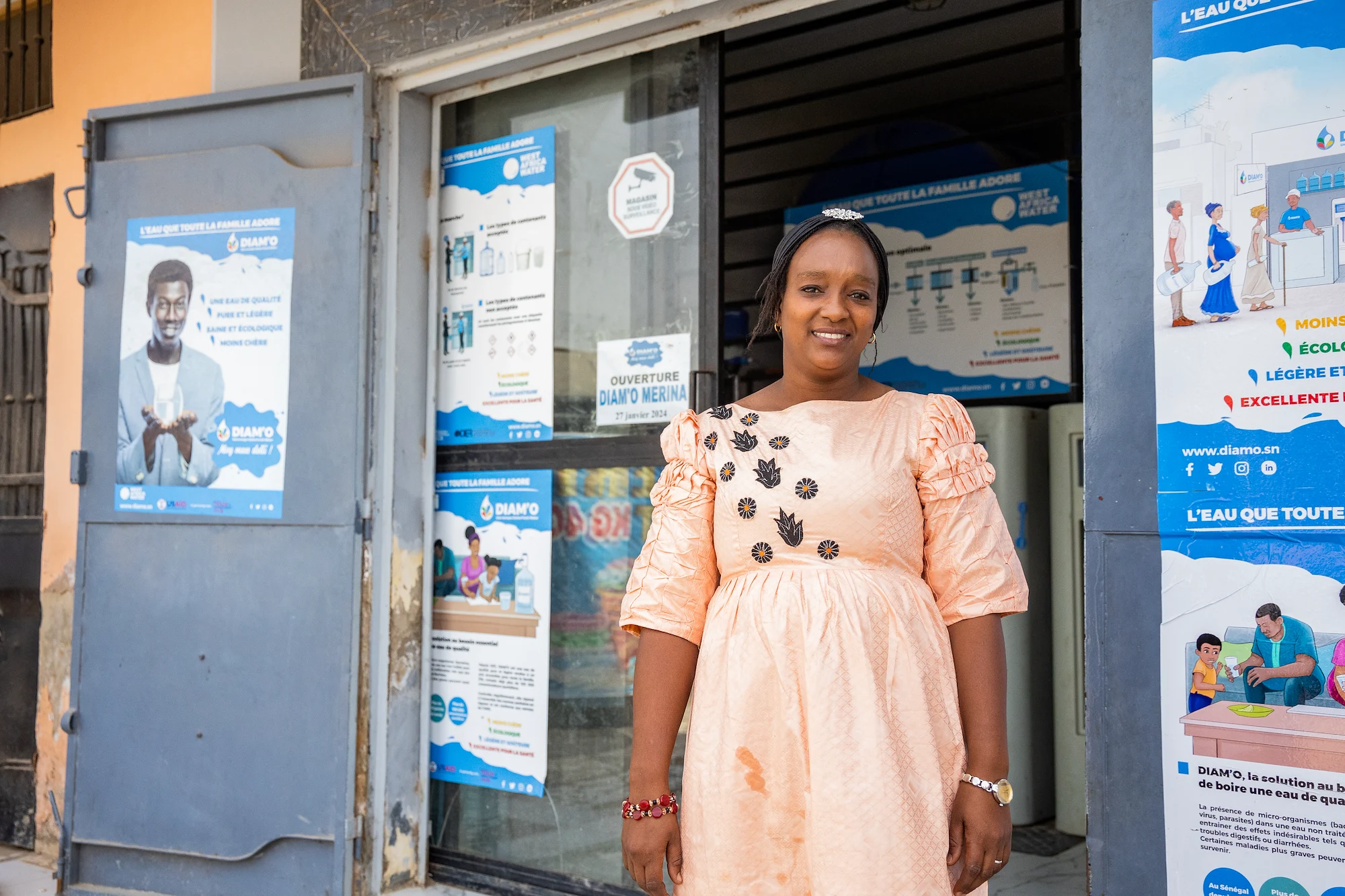
Changing the Paradigm
West Africa Water (WAW), the company behind the brand Diam’O, set out to change the paradigm by establishing independent kiosks equipped with their own water filtration systems. Customers can refill their reusable containers at these kiosks, reducing the need for single-use plastic like bottles or sachets.
With support from USAID’s West Africa Trade & Investment Hub, West Africa Water successfully opened 25 new kiosks and improved dozens of existing ones. There are over 100 kiosks in the Dakar, Thies, Mbour, and Kaolack regions.
“Before, entrepreneurs weren’t able to get by financially. The production volume wasn’t enough and maintenance costs were too high,” says Serge Ndao, General Manager for West Africa Water. “The cooperation with the Trade Hub made our model sustainable. We optimized the distribution of kiosks. There’s been work to the kiosks’ specifications to make them more attractive.”
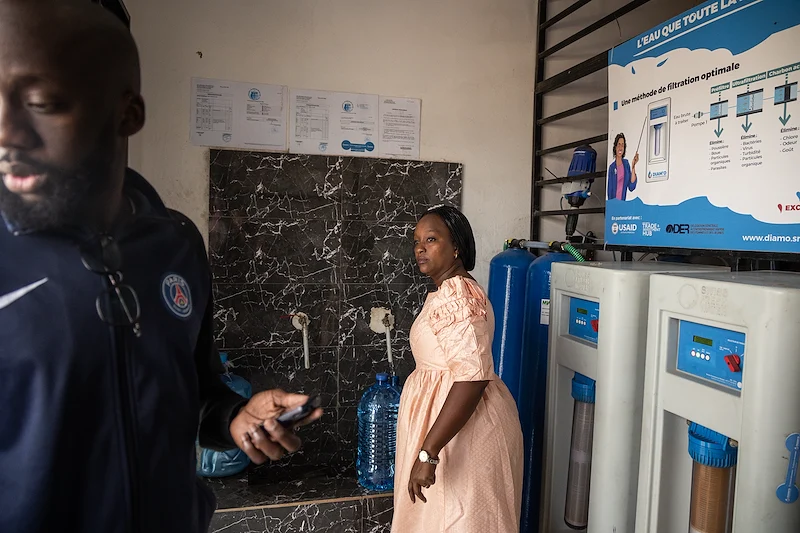
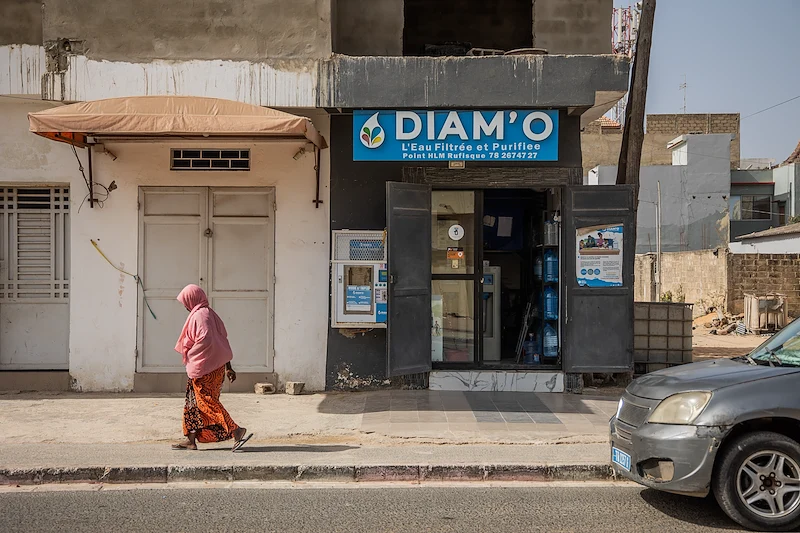
Beyond Clean Water
By taking care of initial installations, West Africa Water allows entrepreneurs to bring clean water to their communities with minimal startup costs. The company also provides regular quality testing, technical assistance, and marketing, finance, and customer service training to each kiosk.
WAW has created 401 jobs —219 for women and 268 for youth—through employment across its kiosks.
As a female entrepreneur, Marieme Diallo sees her Diam’O kiosk as a means to support her family and community.
“It’s not just about drinking the water, which is the most important thing. But you also have a source of revenue. You can take care of your family and children,” Diallo says. “And you know that people love the job you do, love the water you provide them, so it’s a success.”
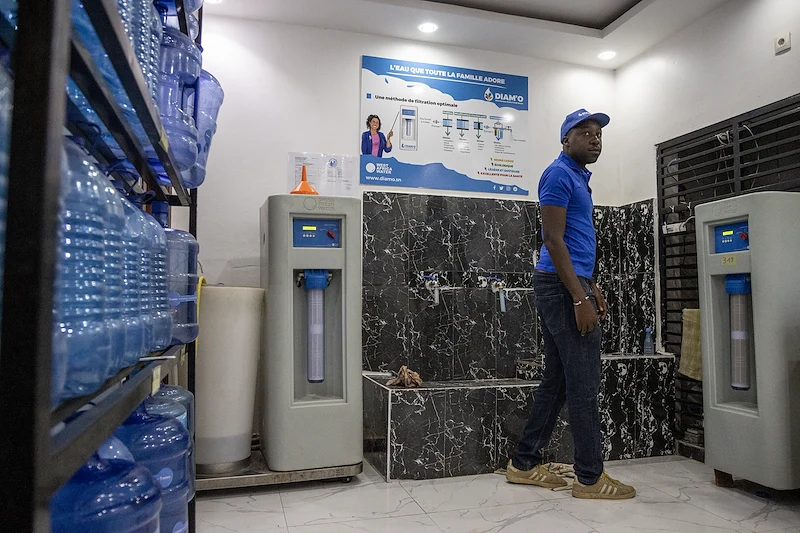
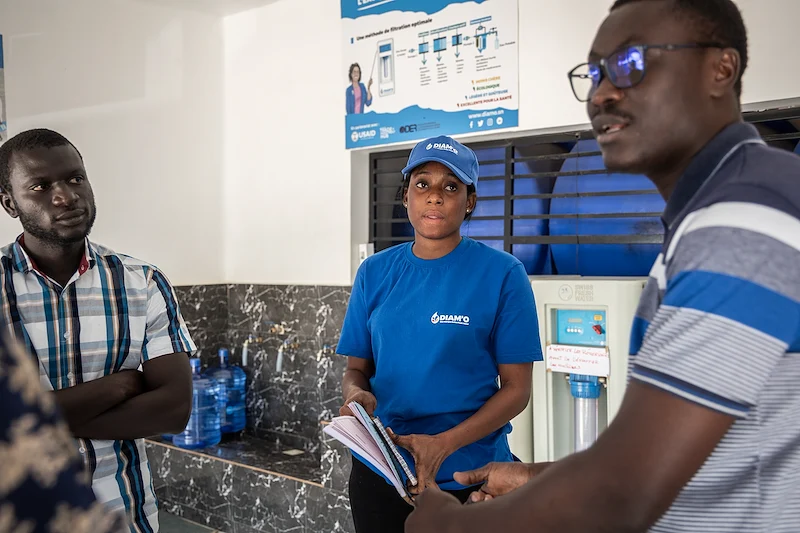
Reaching the Community
The moment Marieme Diallo opens the doors of her kiosk in Rufisque on Sunday morning, people start appearing out of nowhere with empty blue water bottles ready to be filled.
Refilling a 20-liter bottle at Diam’O costs less than buying a 1.5-liter bottle at a store. The quality of the water is continually tested to ensure its quality.
In central Mbour, Ousmane Sarr’s kiosk is one of the largest in the West Africa Water network. But rather than depending on foot traffic, most of Sarr’s sales are through delivery. Through its partnership with the Trade Hub, West Africa Water has acquired delivery vehicles that allow kiosks to bring drinking water to their clients’ doorsteps.
“Delivery is a way for us to reach far more customers,” Sarr explains. “Most of our customers live far away, in areas where access to water is a real problem. Every neighborhood knows exactly when it’s time for the car to pass through.”
As the Diam’O delivery truck passes through the neighborhoods on the outskirts of Mbour, a loudspeaker plays a looped recording lauding the benefits of drinking the brand’s clean, accessible water. Hearing the familiar sound approaching, residents gather their bottles and come outside to flag down the water truck.
The driver then fills their containers from the 2,000-liter tank in the back. For those who don’t yet have their own containers, the truck holds new refillable bottles, too.
“The majority of the population, I would say 90 percent, knows that tap water is not quality water,” Sarr says. “Most water-borne illnesses are due to poor water consumption. And today, we’re raising awareness. We’re always explaining the quality of our water, what they’re currently consuming, and the dangers of drinking water that isn’t potable. The awareness-raising aspect has enabled us to reach many people, many of whom have now become customers.”
With around 5,000 customers per day, West Africa Water has provided access to drinking water to more than 325,000 people since its partnership with USAID began in November 2021.
